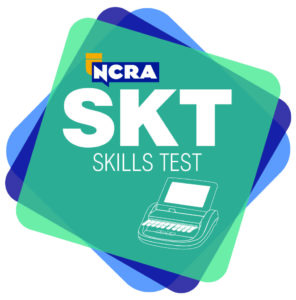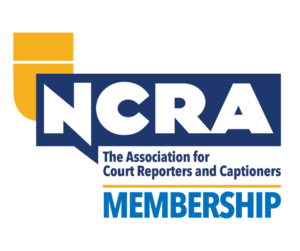By Debra J. Morris
I remember the day I woke up with a spare tire. Judge Gatreaux, the judge I worked for, had a penchant for the 8:30 a.m. to 6:30 p.m. legal marathon. I had a penchant for the Enchiladas Rancheras lunch buffet at El Tío Pepe with other famished court staff. At least, to my credit, I skipped the evening’s Happy Hour margaritas, only because the preliminary hearing transcripts were due in 10 stress-inducing days. Margaritas notwithstanding, it turns out those habits were a recipe for poor health.
Verbatim shorthand reporters fit neatly into the American Heart Association’s definition of a sedentary profession. We’re one with our steno machines until proceedings end. We commute to and from the day’s work. We edit, proofread, build our software dictionaries, research our next day’s case. When we finally declare it the end of the work day, we search for companionship on social media, unwind our minds with reality television, or order that margarita at Happy Hour. All of it sedentary.
Lunchtime workouts mean returning to work uncoiffed. Fatigue and family obligations undermine evening workouts. Morning workouts take strict discipline because of looming deadlines. It’s easy to self-sacrifice for our careers, hoping for the best when it comes to our own physical entropy. Verbatim shorthand reporting is the poster child of a demanding sedentary career.
“We spend a lot more time sitting behind computers than we used to. Movement is being engineered out of our lives, and the best advice is we need to sit less and move more,” said Deborah Rohm Young, Ph.D., in an article published by the American Heart Association News.
Dr. James A. Levine, M.D., Ph.D., explains in an article for the Mayo Clinic, that research links sitting for long periods with increased blood pressure, obesity, high blood sugar, abnormal cholesterol levels, and excess body fat around the waist, and as well as increasing the risk of death from cardiovascular disease and cancer. These risks of sedentarism are separate from those commonly cited as causes of cardiovascular disease, such as smoking and high blood pressure.
Young suggests taking breaks from sedentary time. That’s great in theory, the assiduous among us will argue, but that means convincing our judges, clients, or family to comply. This can be akin to herding cats.
Levine recommends a different approach that removes the need to rally colleagues from the equation. Shorthand reporters can try these examples, or use them to brainstorm individualized ideas for taking breaks from sedentary time:
- Stand while eating lunch.
- Stand while answering emails or making those quick phone calls.
- Raise your steno machine’s standing-height tripod periodically through the proceeding.
- Scope and proofread from a high table or standing desk.
- For off-the-record work, try specialized treadmill-ready vertical desks.
“The impact of movement – even leisurely movement – can be profound,” says Levine. Young agrees. Nudge yourself, she encourages, during downtime to plant yourself less on the sofa. Be mindful of the message and search for ways to sit less, move more, and stress the importance of being physically active, she says.
In today’s world of apps and Internet proximity to others within our profession, reporters could fight back against sedentarism as a group by logging on a social media platform the number of active minutes during the work day. We could start a YouTube channel of five-minute, in-office, physical activity segments. We should explore and share ideas within our professional community ways to improve our health.
I must admit, more than once I’ve cocked an intrigued brow at television commercials for nifty standing desks. While I’ve never succeeded at proofreading on a treadmill, I know myself, and a new tablet with all the latest features just might be the incentive to make that work. The good habit I have successfully established is committing to exercise before the career portion of the day. Admittedly, an hour at the gym once per day doesn’t negate the other 23 hours of sedentary living, but prioritizing that health comes first sets the self-management, good-habit standard that leads the rest of the day. A successful career is not possible without a healthy you.
Debra Morris is a freelance court reporter from Valencia, Calif. She can be reached at djmreporter@gmail.com.



